
-
 On Bourbon Street, a grim cleanup after deadly nightmare
On Bourbon Street, a grim cleanup after deadly nightmare
-
New Orleans killer acted alone, professed loyalty to jihadist group: FBI

-
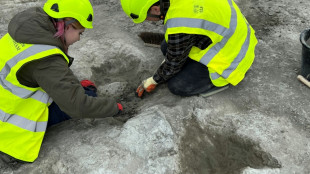 UK's biggest dinosaur footprint site uncovered
UK's biggest dinosaur footprint site uncovered
-
Former Australia coach Langer to take charge of London Spirit

-
 Most UK doctors suffer from 'compassion fatigue': poll
Most UK doctors suffer from 'compassion fatigue': poll
-
Everton boss Dyche unconcerned by Maupay jibe

-
 FBI probes potential accomplices in New Orleans truck ramming
FBI probes potential accomplices in New Orleans truck ramming
-
Secret lab developing UK's first quantum clock: defence ministry

-
 Premier League chief fears Club World Cup's impact on Man City and Chelsea
Premier League chief fears Club World Cup's impact on Man City and Chelsea
-
US mulls new restrictions on Chinese drones

-
 Rosita Missoni of Italy's eponymous fashion house dies age 93
Rosita Missoni of Italy's eponymous fashion house dies age 93
-
27 sub-Saharan African migrants die off Tunisia in shipwrecks

-
 UK grime star Stormzy banned from driving for nine months
UK grime star Stormzy banned from driving for nine months
-
Neil Young dumps Glastonbury alleging 'BBC control'
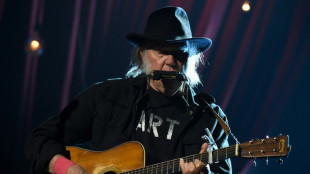
-
 Swiatek battles back to take Poland into United Cup semis
Swiatek battles back to take Poland into United Cup semis
-
Electric cars took 89% of Norway market in 2024
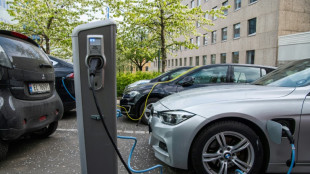
-
 Rival South Korea camps face off as president holds out
Rival South Korea camps face off as president holds out
-
French downhill ace Sarrazin out of intensive care

-
 Djokovic cruises past Monfils as rising stars impress in Brisbane
Djokovic cruises past Monfils as rising stars impress in Brisbane
-
Montenegro mourns after gunman kills 12

-
 Sales surge in 2024 for Chinese EV giant BYD
Sales surge in 2024 for Chinese EV giant BYD
-
Agnes Keleti, world's oldest Olympic champion, dies at 103

-
 Andreeva, Mpetshi Perricard showcase Australian Open potential
Andreeva, Mpetshi Perricard showcase Australian Open potential
-
Afghan refugees suffer 'like prisoners' in Pakistan crackdown

-
 Coach tight-lipped on whether Rohit will play in final Australia Test
Coach tight-lipped on whether Rohit will play in final Australia Test
-
Blooming hard: Taiwan's persimmon growers struggle

-
 South Korea's impeached president resists arrest over martial law bid
South Korea's impeached president resists arrest over martial law bid
-
Knicks roll to ninth straight NBA win, Ivey hurt in Pistons victory

-
 'Numb' New Orleans grapples with horror of deadly truck attack
'Numb' New Orleans grapples with horror of deadly truck attack
-
Asia stocks begin year on cautious note

-
 FBI probes 'terrorist' links in New Orleans truck-ramming that killed 15
FBI probes 'terrorist' links in New Orleans truck-ramming that killed 15
-
2024 was China's hottest year on record: weather agency
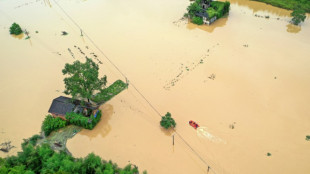
-
 Perera smashes 46-ball ton as Sri Lanka pile up 218-5 in 3rd NZ T20
Perera smashes 46-ball ton as Sri Lanka pile up 218-5 in 3rd NZ T20
-
South Korea police raid Muan airport over Jeju Air crash that killed 179

-
 South Korea's Yoon resists arrest over martial law bid
South Korea's Yoon resists arrest over martial law bid
-
Sainz set to step out of comfort zone to defend Dakar Rally title

-
 New Year's fireworks accidents kill five in Germany
New Year's fireworks accidents kill five in Germany
-
'I'm Still Here': an ode to Brazil resistance

-
 New Orleans attack suspect was US-born army veteran
New Orleans attack suspect was US-born army veteran
-
Australia axe Marsh, call-up Webster for fifth India Test

-
 Jets quarterback Rodgers ponders NFL future ahead of season finale
Jets quarterback Rodgers ponders NFL future ahead of season finale
-
Eagles' Barkley likely to sit out season finale, ending rushing record bid

-
 Syria FM hopes first foreign visit to Saudi opens 'new, bright page'
Syria FM hopes first foreign visit to Saudi opens 'new, bright page'
-
At least 10 dead in Montenegro restaurant shooting: minister

-
 Arteta reveals Arsenal hit by virus before vital win at Brentford
Arteta reveals Arsenal hit by virus before vital win at Brentford
-
Palestinian Authority suspends Al Jazeera broadcasts

-
 Arsenal close gap on Liverpool as Jesus stars again
Arsenal close gap on Liverpool as Jesus stars again
-
Witnesses describe 'war zone' left in wake of New Orleans attack

-
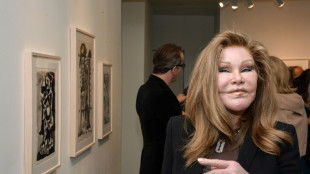 Cosmetic surgery aficionado Jocelyne Wildenstein dies aged 79: partner
Cosmetic surgery aficionado Jocelyne Wildenstein dies aged 79: partner
-
Tschofenig takes overall Four Hills lead after second leg win


Is the US election really so close?
The United States stands on edge as polls suggest one of the closest presidential races in history between former president Donald Trump and Vice President Kamala Harris.
Major polling outlets show the candidates virtually deadlocked.
In battleground states on election eve, polling aggregator FiveThirtyEight reported a 47.8 percent tie in Pennsylvania, near-identical numbers in Nevada, and mere one-point differences in Wisconsin, Michigan, and North Carolina.
But these razor-thin margins may not tell the whole story.
"I wonder, is it really this close?" asked W. Joseph Campbell, professor at American University in Washington.
His questions stems from pollsters' troubled track record in recent elections and a potential overreaction to past failures.
The political establishment was blindsided in 2016 when Trump won despite trailing in polls, while Joe Biden's 2020 victory margin proved much narrower than predicted.
In 2022, Republicans secured only a slim Congressional majority despite forecasts of a "red wave."
"The 2020 presidential election was collectively the worst for pollsters in forty years and an embarrassment for many," Campbell said.
Trump's emergence on the political scene largely explains these polling mishaps. His supporters were consistently undercounted in 2016 and 2020, prompting polling companies to adjust their methodologies.
- 'Traumatic for pollsters' -
History offers an intriguing parallel: In 1980, polls showed incumbent Jimmy Carter neck-and-neck with Ronald Reagan. Reagan ultimately won by 10 points, benefiting from a late surge while Carter lost support to a third-party candidate.
"I'm not saying that's going to be the model in 2024, but it is something to keep in mind," Campbell added.
Leading polling analysts openly acknowledged these challenges.
"No, you can't trust the polls... You can't safely assume that the candidate leading in the polls is going to win," wrote Nate Cohn, the New York Times chief political analyst and polling director.
Cohn explained that pollsters are working to correct systemic biases that emerged in the Trump era.
"It's hard to overstate how traumatic the 2016 and 2020 elections were for many pollsters. For some, another underestimate of Trump could be a major threat to their business and their livelihood."
However, he warned that while adjusting methods to better capture Trump voters, pollsters might now be underestimating Harris.
"On balance, these changes add up to a case for cautious optimism on better accuracy, but there are no guarantees," Cohn concluded.
Some experts suspect pollsters may be falling victim to groupthink, or "herding", adjusting results that deviate significantly from the consensus.
Professors Joshua Clinton and John Lapinski warned to NBC news: "State polls are showing not just an astonishingly tight race, but also an improbably tight race."
They suggest that "a risk-averse pollster who gets a 5-point margin in a race they think is tied may choose to 'adjust' the results to something closer to what other polls are showing, lest their outlier poll adversely affects their reputation..."
They said this raised a crucial question: "Is 2024 going to be as close as 2020 because our politics are stable, or do the polls in 2024 only look like the results of 2020 because of the decisions that state pollsters are making?"
P.Cavaco--PC
